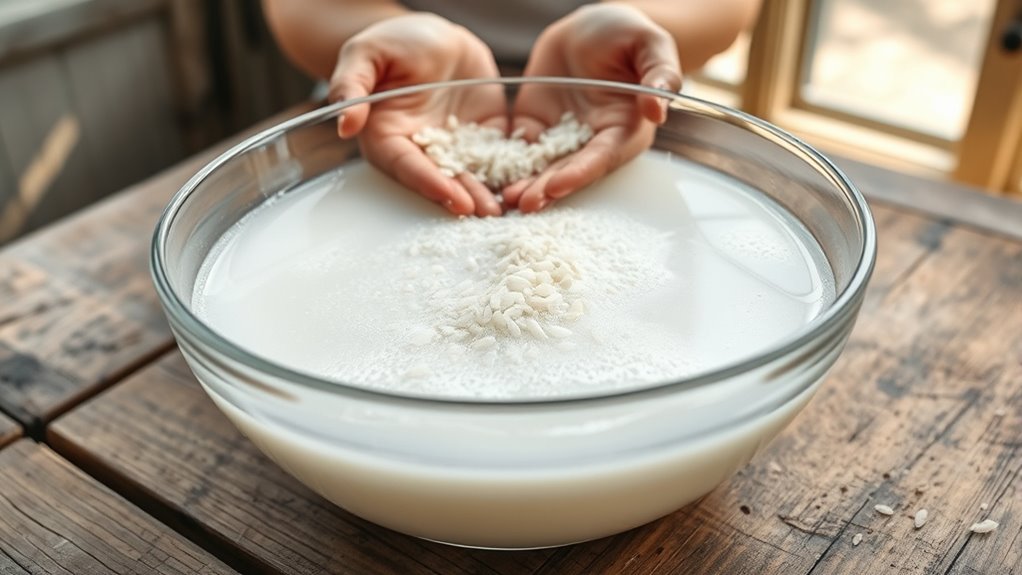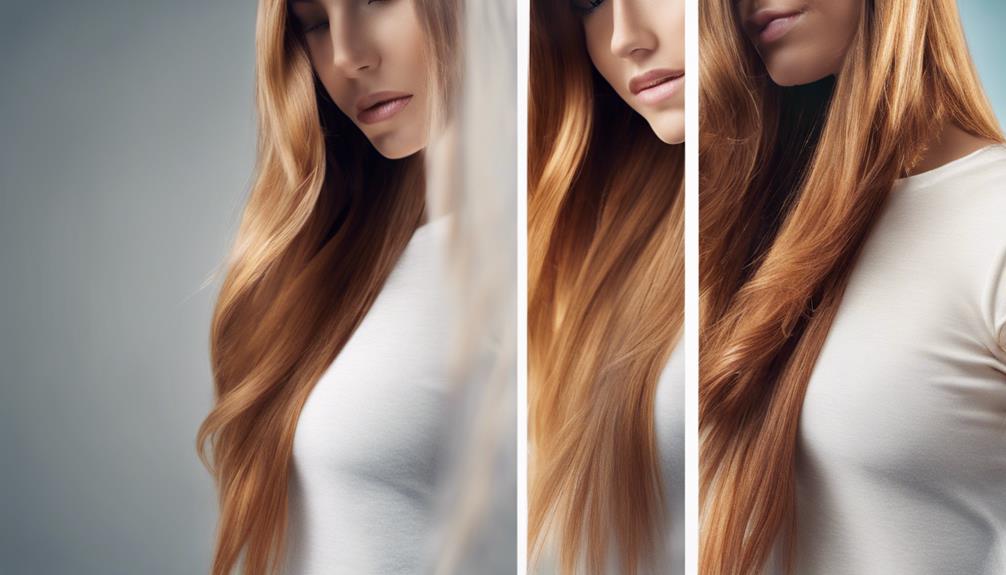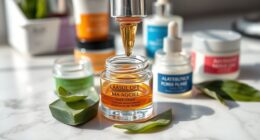Rice water rinses might seem like a miracle because they’ve been a part of Asian beauty traditions for centuries, promising shiny hair and clear skin. Scientific research supports some benefits, such as repairing damaged hair and soothing skin inflammation. However, results depend on individual skin and hair types, and consistency is key. While they’re affordable and safe to try, understanding how they work can help you decide if they’re right for you—discover more below.
Key Takeaways
- Rice water contains nutrients like inositol and antioxidants that can benefit hair and skin health.
- Traditional Asian practices support rice water’s use for glowing skin and shiny hair, giving it cultural credibility.
- Scientific studies suggest bioactive compounds in rice water may repair damaged hair and soothe skin, but evidence varies.
- Results depend on individual hair and skin types, and consistent use enhances potential benefits.
- When used properly and gradually, rice water rinses are safe, affordable, and a natural alternative to chemical products.

Have you ever wondered how rice water rinses became a popular beauty secret? It’s a question many people ask as they stumble upon stories of glowing skin and shiny hair achieved through this simple, natural remedy. The idea is rooted in centuries-old traditions, especially in Asian cultures, where women have long swished rice water through their hair and wiped it onto their skin. But what makes rice water so appealing? The answer lies in its potential to deliver noticeable hair nourishment and skin benefits, making it a go-to natural treatment for many.
When you use rice water as a rinse, you’re essentially giving your hair a boost of nutrients. Rice water contains inositol, a carbohydrate that can penetrate the hair shaft, helping repair damaged strands and protect against future damage. This means your hair may become stronger, shinier, and more resilient over time. Many users report that regular rinses reduce hair breakage and improve manageability. Besides its strengthening properties, rice water can also add a natural shine to your hair, making it look healthier and more vibrant. It’s an affordable and gentle alternative to chemical-laden hair products, especially if you’re seeking a more natural way to nourish your hair from the inside out.
Rice water nourishes hair with inositol, strengthening strands and boosting shine naturally.
The skin benefits of rice water are equally compelling. When you incorporate it into your skincare routine, you might notice a brighter, more even complexion. Rice water is rich in antioxidants, vitamins, and minerals that can help soothe inflammation, reduce redness, and improve skin elasticity. It’s known for its soothing properties, which can calm irritated or sensitive skin, making it suitable for a variety of skin types. Additionally, the gentle exfoliating effect of rice water can help remove dead skin cells, revealing a smoother, more radiant surface. Many people use rice water as a toner or facial rinse, and some even incorporate it into homemade masks, touting its ability to tighten pores and improve overall skin texture. Research into its bioactive compounds supports its traditional use in skincare.
While the science behind rice water’s benefits is still evolving, many users swear by its effectiveness. Its natural composition makes it a safe choice for those wary of harsh chemicals. However, like any beauty remedy, results can vary based on individual skin and hair types, and consistency is key. If you’re curious about trying rice water, start with small amounts to see how your skin and hair respond. Overall, whether it’s a myth or miracle, rice water remains a simple, accessible, and potentially powerful addition to your beauty routine.
Frequently Asked Questions
Can Rice Water Help With Scalp Psoriasis or Dermatitis?
Rice water may soothe scalp psoriasis and dermatitis, but it’s not a proven treatment. You might find temporary relief from itching and inflammation, yet it won’t replace medicated dermatitis treatment. Use it cautiously, as some ingredients could irritate sensitive skin. For effective management, consult a dermatologist and follow their advice, combining proven treatments with gentle remedies like rice water to support scalp health.
How Often Should Rice Water Be Used for Best Results?
You should apply rice water 2-3 times a week for ideal usage. Imagine the gentle rinse calming your scalp, like a revitalizing breeze on a warm day. Consistent application helps improve hair strength and shine without overdoing it. Stick to this frequency, and you’ll notice better results over time. Always observe how your scalp responds and adjust the application frequency if needed to avoid any irritation.
Are There Any Risks of Bacterial Contamination in Rice Water?
Yes, there are risks of bacterial contamination in rice water if you don’t handle it properly. Poor food safety practices can promote bacterial growth, especially if you leave rice water at room temperature for too long. To prevent this, always store rice water in the refrigerator, use it within a day or two, and avoid reusing contaminated water. Proper storage and cleanliness are key to minimizing bacterial growth and ensuring safety.
Does Rice Water Work Equally Well on All Hair Types?
You’ll find rice water works differently depending on your hair type—about 60% of people notice improvements, but results vary. If you have high hair porosity or natural textures, rice water can help strengthen and smooth your strands. However, those with low porosity hair might not see as much benefit. Experiment with small amounts to see how your unique hair responds, tailoring the rinse to your porosity and texture.
Can Rice Water Improve Hair Growth Speed Significantly?
Yes, rice water can help improve hair growth speed by boosting hair thickness and moisture retention. When you use rice water regularly, it nourishes your scalp, strengthens hair strands, and encourages faster growth. While results vary, consistent use can make your hair appear thicker and healthier, giving the impression of quicker growth. Keep in mind, individual factors like diet and genetics also influence how much your hair grows.
Conclusion
So, next time you rinse rice, remember that the benefits might just surprise you—sometimes, a simple trick can reveal hidden miracles. It’s funny how such a common kitchen step can unexpectedly boost your hair and skin routine. Maybe it’s coincidence, or maybe there’s something truly special about rice water. Either way, why not give it a try and see if this ancient secret becomes your new favorite? After all, sometimes the simplest things hold the greatest potential.









